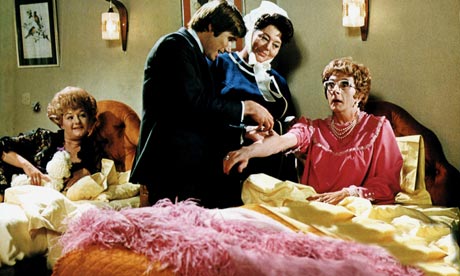
The patient-doctor relationship can be complicated. It needs honesty, confidence, and an ability to listen and communicate. Yet last week it emerged that written complaints about NHS hospital and community health services in England had risen more sharply than ever before. The total jumped from 89,139 to 101,077 – a rise of 13.4%. The largest single group of complaints (44% of all cases), involved doctors – double that of nurses, midwives and health visitors combined. The most common complaint was about treatment patients had received (42%), then the attitude of staff (12%).
So what's going wrong? "For patients and doctors to have a good relationship they need to trust each other, which comes down to personal rapport and openness," says Dr Paul Hodgkin, a part-time GP and chief executive of Patient Opinion, a website for NHS patients to record their experiences. "People hate doctors when they don't tell them the truth and feel that they haven't been treated as equals. Doctors are so much better [at this] than they used to be, but they could be a lot better."
Katherine Murphy, director of the Patients Association, agrees: "We hear often that the doctor was dismissive, or didn't have enough time to explain what was going on, or used inappropriate medical terminology." Health secretary Andrew Lansley wants doctors to routinely offer patients information about their symptoms and the risks and benefits of possible treatments. But Murphy says doctors should go further and automatically refer any patient diagnosed with an illness to support organisations, such as Diabetes UK or Macmillan Cancer Support.
Professor Steve Field, chairman of the Royal College of General Practitioners, says he often looks up the patient's medical condition on his computer in their presence, especially from the NHS Choices website, to encourage patients to do their own research and ensure there is no misdiagnosis. But he notes that a patient's own internet research can sometimes be "completely wrong and often they have read into things more than they need to."
For GPs there is also the problem of the small number of patients who regularly report persistent symptoms such as backaches or headaches which turn out to be psychological in origin. "The patient can be upset, angry and annoyed with you because by saying it's not a physical problem you aren't fulfilling their needs," says Field. Some accept psychological treatment, but others move to another GP.
Yet by far the most frightening reason for a relationship breakdown between doctors and patients is misdiagnosis. The government's cancer tsar estimates that late diagnosis of cancer costs 10,000 Britons their lives every year, while the Medical Research Council recently revealed that GPs weren't spotting dementia early enough. Philippa Luscombe, a medical negligence solicitor, says many cases she sees are, "people who have convinced themselves their minor symptoms mean there's something seriously wrong. Eventually a GP stops taking such patients seriously". One first-time mother who regularly brought her baby in to see her GP, prompted by its crying, was correctly reassured that nothing was wrong. When she grew concerned about her child's crawling, the GP – as usual – told her not to worry. However, the baby actually had a congenital hip displacement and the 12 to 18-month delay in identifying the problem meant the child had to have repeated major surgery.
The other misdiagnosed group are fit and healthy people who suddenly complain repeatedly, over a short period of time, of the same problem but aren't taken seriously. "I have a client who had inflammation of the discs in the neck, which turned into a spinal abscess and then pressed on her spinal column, which is serious," recalls Luscombe. "This condition was missed by her GP for about four weeks, and if it had not been spotted for a few days more, she would potentially have ended up paralysed, though she still had to have major emergency surgery".
Luscombe believes that anyone who exhibits a "red flag" symptom – such as muscle weakness, pins and needles, double vision or chest pains – should be investigated. "My concern is too many doctors adopt a wait-and-see policy that can lead to permanent disability or even death". She has handled cases of previously healthy people not having their symptoms taken seriously including Natalie Naylor, 20, who died after her meningitis was missed.
So what should you do if you don't feel your GP is taking you seriously? Murphy suggests first challenging the doctor or asking them to justify their diagnosis or suggested treatment. "If that doesn't work, and the patient feels sure they know what their illness is, they could then ask the doctor to check out some reputable medical websites, such as NHS Choices, and compare what it says about their symptoms." But if all else fails the surefire way is to"insist on having a second opinion.No doctor will like that, but patients' rights are more important than doctors' professional pride, so don't be put off by the fact that someone's in a white coat."

